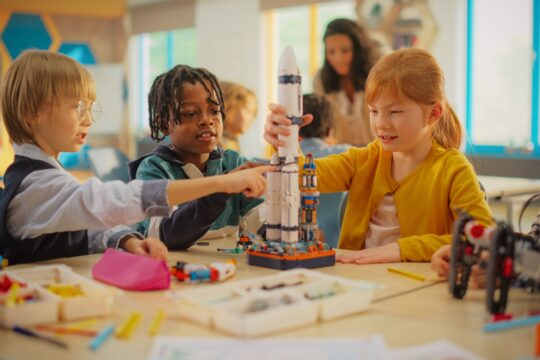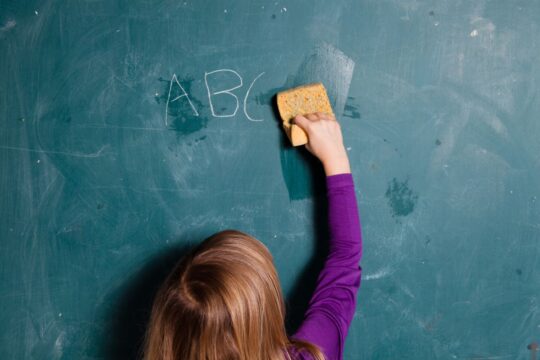A well-rounded education should provide students with essential life skills they can use throughout their lives. While middle and high schools teach many valuable academic lessons, the current curriculum often falls short in preparing students for the practical realities of adulthood.
Important skills like managing money, building credit, cooking, looking for jobs, and managing time are often not taught well.
Here we’ll explore five life skills that should be a part of every student’s education.
How to Handle Money
While schools teach the basics of money: what it is, how it works, and why we need it. They rarely dive deeper into how to manage personal finances. Few students graduate knowing how to open a bank account, create a budget, or save a portion of their paycheck.
It is important for students to know how to manage their money. They should learn to prioritize spending, save for emergencies, and avoid financial mistakes before going to college or living on their own.
Teaching these skills would empower students to make informed financial decisions, ensuring they are better prepared for adult life.
Teaching this life skill: Create a classroom budget project where students allocate a fictional paycheck to expenses, savings, and discretionary spending. This hands-on activity helps students practice making financial decisions.
How to Establish Credit
For many students, their first experience with credit comes after high school, often in the form of a credit card.
Without proper education, they may see a credit card as free money, leading to overspending and missed payments. This often results in debt and poor credit scores, setting the stage for long-term financial challenges.
Schools need to teach the basics of credit: how to build it responsibly, the importance of paying bills on time, and how to avoid common pitfalls like accumulating debt.
By learning these ideas early, students can begin their money journey in a good way. This helps them avoid problems from bad credit management.
Teaching this life skill: Have students research credit card options and create a mock plan for using a credit card responsibly, including budgeting for monthly payments. Discuss the consequences of missed payments and how credit scores work.
How to Cook
Home economics classes, which once taught students how to cook and manage a household, are now rare in schools.
Yet cooking is a fundamental life skill that everyone should know. Whether it’s for maintaining a healthy diet or saving money by eating at home, learning how to prepare meals is crucial.
Basic cooking skills, such as food preparation, understanding nutrition, and following safety and hygiene protocols, should be part of the school curriculum.
By equipping students with these skills, we set them up for healthier and more independent lives.
Teaching this life skill: Incorporate simple cooking demonstrations or recipe-planning assignments into a science or health class. Consider trying a “meal math” activity where students calculate portions and costs for cooking at home.
How to Find a Job
Education’s ultimate goal is to prepare students to become contributing members of society, and this includes helping them transition into the workforce.
However, many students leave high school without knowing how to find, apply for, or succeed in a job.
Skills like writing resumes and cover letters, preparing for interviews, and negotiating contracts are rarely taught but are crucial for students entering the job market.
Schools can address this gap by incorporating mock interviews, career workshops, and lessons on job search strategies into their programs. For students who enter the workforce directly after high school, these skills are especially vital.
Teaching this life skill: Run a mock interview day where students practice answering common interview questions and receive feedback. Pair this with a lesson on writing resumes and cover letters tailored to specific job postings.
How to Manage Time
Time management is a skill that benefits students not only in school but throughout their entire lives. From elementary school onward, students should learn how to prioritize tasks, plan their schedules, and balance their responsibilities effectively.
Teaching time management early on helps students navigate their academic workload, extracurricular activities, and personal lives more efficiently.
As adults, these skills translate into managing careers, families, and daily responsibilities. Building a foundation of time management in school prepares students for the increasingly hectic demands of adulthood.
Teaching this life skill: Introduce time-blocking or priority-setting exercises where students plan their day or week using a calendar or planner. Discuss strategies for balancing homework, extracurriculars, and relaxation time effectively.
These are just five of the life skills that are not taught in school or just briefly touched upon.
Schools should teach more important skills. Students need to learn how to live independently, defend themselves, perform first aid, understand the law, do home repairs, manage healthcare, and use good manners.
For your students to be well-rounded, successful people, there needs to be a change in the current school curriculum.
Educators never stop learning; check out our available graduate degree programs to hone your skills and promote lifelong learning and academic excellence.




